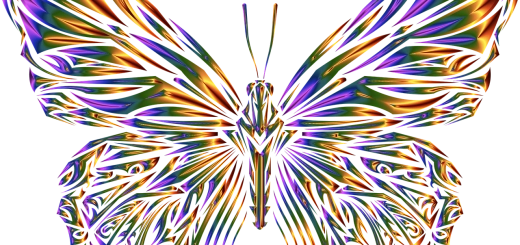Vedanta’s View on the Purpose and Meaning of Life

Looking for more amazing products? Check out our online store and explore our collection here! Happy shopping!
Before diving in, please note: This post is for informational purposes only. If you’d like to know more about how we approach topics, feel free to check out our friendly Disclaimer Page.
Hey there, amazing readers! 
We’re committed to delivering quality posts, and your support (even just sticking around despite the ads) means everything to us. So, bear with us, and thanks for helping us keep the good vibes rolling. Now, on to the fun stuff!
TRANSLATE BUTTON AT THE END OF THE ARTICLE
Introduction to Vedanta Philosophy
Vedanta is a profound philosophy that delves into the fundamental questions of existence, offering insights into the purpose and meaning of life.
Rooted in ancient Indian wisdom, Vedanta seeks to unravel the mysteries of the universe and human existence through a spiritual lens.
It is a philosophy that emphasizes self-realization, spiritual growth, and the pursuit of liberation from the cycle of birth and death.
Vedanta teaches that the ultimate goal of life is to realize one’s true nature and to experience union with the divine.
Origins of Vedanta Beliefs
The origins of Vedanta beliefs can be traced back to the Vedas, the ancient scriptures of India.
Vedanta is considered the culmination of Vedic wisdom, synthesizing the teachings of the Upanishads, Brahma Sutras, and Bhagavad Gita.
These texts expound upon the nature of reality, the self, and the ultimate truth that underpins the universe.
Vedanta posits that all beings are interconnected and that the goal of life is to realize this interconnectedness and attain spiritual liberation.
Understanding Life’s Purpose
According to Vedanta, the purpose of life is to realize one’s true nature as an eternal spiritual being.
Life is seen as an opportunity for growth, self-discovery, and spiritual evolution.
By understanding the true nature of the self and the universe, individuals can transcend the limitations of the material world and experience profound inner peace and fulfillment.
Vedanta teaches that the pursuit of material wealth and worldly pleasures, while necessary for sustenance, should not be the sole focus of life.
Concept of Dharma in Vedanta
Dharma, or righteous living, is a central concept in Vedanta philosophy.
It refers to the inherent duty and moral responsibility that each individual has towards themselves, others, and the universe.
Living in accordance with one’s dharma is believed to lead to spiritual growth, inner harmony, and a sense of purpose.
Vedanta emphasizes the importance of fulfilling one’s dharma while remaining detached from the fruits of one’s actions, focusing instead on selfless service and devotion.
Pursuit of Self-Realization
Self-realization is the cornerstone of Vedanta philosophy.
It involves realizing the true nature of the self as pure consciousness beyond the limitations of the body and mind.
Through introspection, meditation, and self-inquiry, individuals can unravel the layers of conditioned beliefs and egoic identifications that obscure their true nature.
Self-realization leads to a profound sense of peace, joy, and liberation from the cycle of birth and death.
Role of Karma in Vedanta
Karma, the law of cause and effect, plays a crucial role in Vedanta philosophy.
It refers to the moral consequences of one’s actions, thoughts, and intentions, which shape one’s present circumstances and future destiny.
Vedanta teaches that individuals are responsible for their own karma and that by performing righteous actions and cultivating positive qualities, one can purify the mind and create favorable conditions for spiritual growth.
Through selfless service, devotion, and mindfulness, individuals can transcend the cycle of karma and attain liberation.
Liberation through Moksha
Moksha, or liberation from the cycle of birth and death, is the ultimate goal of Vedanta philosophy.
It involves realizing one’s true nature as an eternal, unchanging, and blissful being beyond the limitations of the material world.
Moksha is attained through self-realization, spiritual practices, and the grace of the divine.
By transcending the ego, desires, and attachments, individuals can experience the profound freedom, peace, and joy that come with liberation.
Importance of Spiritual Growth
Spiritual growth is an essential aspect of Vedanta philosophy.
It involves cultivating virtues such as love, compassion, wisdom, and selflessness, which are believed to lead to inner transformation and self-realization.
Through spiritual practices such as meditation, prayer, self-inquiry, and selfless service, individuals can purify the mind, expand their consciousness, and deepen their connection with the divine.
Spiritual growth is seen as a lifelong journey of self-discovery, transformation, and evolution.
Achieving Balance in Life
Vedanta emphasizes the importance of achieving balance in all aspects of life – physical, mental, emotional, and spiritual.
Balance is seen as the key to harmonious living and inner peace.
By balancing work and leisure, activity and rest, material pursuits and spiritual aspirations, individuals can lead a fulfilling and meaningful life.
Vedanta teaches that true happiness and fulfillment come from within and that by cultivating inner balance and harmony, one can navigate life’s challenges with grace and equanimity.
Fulfillment of Human Potential
According to Vedanta, every individual has the potential to realize their true nature as pure consciousness and to experience profound inner peace and joy.
Fulfilling one’s human potential involves realizing one’s innate divinity, cultivating virtues such as love and compassion, and living in alignment with one’s dharma.
By realizing the interconnectedness of all beings and the oneness of the self with the universe, individuals can unlock their full potential and lead a life of purpose, meaning, and fulfillment.
Connecting with the Divine
Vedanta teaches that the ultimate purpose of life is to realize one’s essential unity with the divine – the source of all existence.
By cultivating devotion, surrender, and selfless service, individuals can establish a deep connection with the divine and experience profound inner peace and joy.
The divine is seen as the ultimate reality underlying all of creation, and by connecting with the divine within themselves and others, individuals can transcend the limitations of the ego and experience the oneness of all existence.
Living a Meaningful Existence
In Vedanta philosophy, living a meaningful existence involves realizing one’s true nature as pure consciousness, cultivating virtues such as love and compassion, and living in alignment with one’s dharma.
By embracing the spiritual teachings of Vedanta, individuals can lead a life of purpose, meaning, and fulfillment.
Living a meaningful existence is about transcending the ego, desires, and attachments, and realizing the interconnectedness of all beings.
By living in harmony with oneself, others, and the universe, individuals can experience deep inner peace, joy, and fulfillment in every moment.
Conclusion
Vedanta philosophy offers profound insights into the purpose and meaning of life, emphasizing self-realization, spiritual growth, and the pursuit of liberation from the cycle of birth and death.
By understanding the teachings of Vedanta and applying them to one’s life, individuals can realize their full potential, connect with the divine, and lead a life of purpose, meaning, and fulfillment.
Vedanta teaches that the ultimate goal of life is to realize one’s true nature as pure consciousness and to experience profound inner peace and joy.
Through self-realization, spiritual growth, and the pursuit of liberation, individuals can navigate life’s challenges with grace and equanimity, leading a life of balance, harmony, and fulfillment.

The Enlightenment Journey is a remarkable collection of writings authored by a distinguished group of experts in the fields of spirituality, new age, and esoteric knowledge.
This anthology features a diverse assembly of well-experienced authors who bring their profound insights and credible perspectives to the forefront.
Each contributor possesses a wealth of knowledge and wisdom, making them authorities in their respective domains.
Together, they offer readers a transformative journey into the realms of spiritual growth, self-discovery, and esoteric enlightenment.
The Enlightenment Journey is a testament to the collective expertise of these luminaries, providing readers with a rich tapestry of ideas and information to illuminate their spiritual path.
Our Diverse Expertise
While our primary focus is on spirituality and esotericism, we are equally passionate about exploring a wide range of other topics and niches 

To ensure we provide the most accurate and valuable insights, we collaborate with trusted experts in their respective domains 
Our blog originally focused on spirituality and metaphysics, but we’ve since expanded to cover a wide range of niches. Don’t worry—we continue to publish a lot of articles on spirituality! Frequently visit our blog to explore our diverse content and stay tuned for more insightful reads.
Hey there, amazing reader! 
Check out our store here and take a peek at some of our featured products below! Thanks for being awesome!











